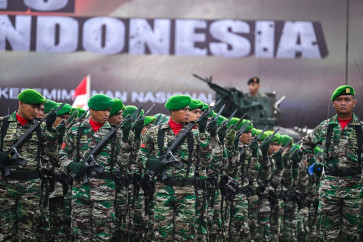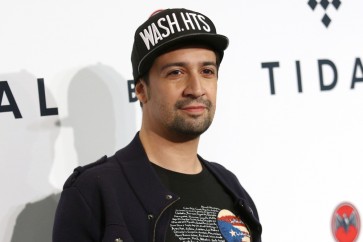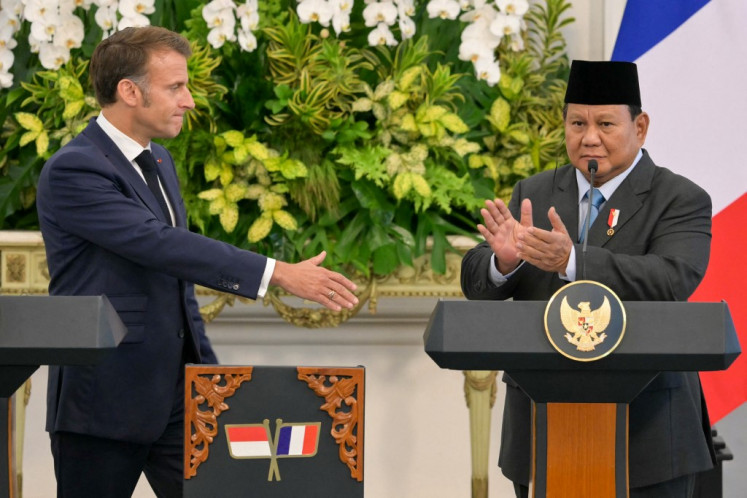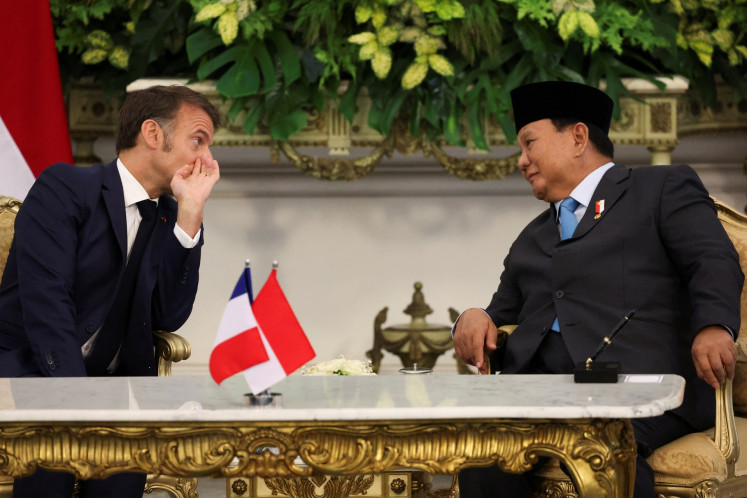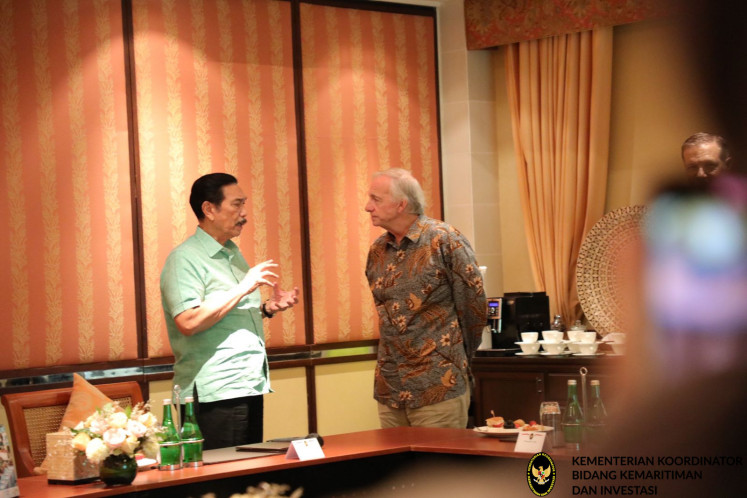Choosing to Lose
Scott Hanna’s final wake-up call to take control of his eating and his weight came with an embarrassingly close encounter with an airline meal tray
Change text size
Gift Premium Articles
to Anyone

S
cott Hanna’s final wake-up call to take control of his eating and his weight came with an embarrassingly close encounter with an airline meal tray.
During one of his frequent trips across Indonesia as a mining company employee, Hanna struggled in vain to get the tray down for his in-flight meal. His stomach was in the way.
“I stopped myself and said, ‘This is crazy, you are trying to eat more food and you cannot even fit the tray down in front of your big belly’. Something has to change,” said the American, who is married to an Indonesian and the father of two.
Hanna has waged a lifelong battle with his weight, reaching at least 200 kilograms by the age of 10.
But there were other alarming signs of his diminishing quality of life caused by the 164 kilograms he was carrying on his 1.85-meter frame. His company’s doctors warned him that visiting the high-altitude location of the mining project put a potentially dangerous strain on his heart.
“My knees also hurt badly when I went down steps, so I couldn’t even carry my young daughters to bed if they fell asleep. For a 30-year-old father not to be able do things that a grandfather often can,
I knew I was not being the parent I could and should be,” said Hanna.
He had even considered the expensive and potentially risky method of lap-band surgery. Instead, he opted to take part in the reality show The Biggest Loser Asia Season 2 in 2010. Although he was one of the first contestants eliminated from the show, he continued his quest to lose weight and get healthy on his own.
During the finale held in Singapore last December (the city-state’s own Raj emerged the winner), Hanna’s markedly slimmer appearance earned him a round of applause from other contestants and the studio audience. His weight has dropped from 164 kilograms at the beginning of the series to around 104 kilograms now. He speaks with a passion and intensity about the cause of losing weight and getting healthy.
Hanna emphasized the show was no glorified fat camp but hard work; contestants exercise up to 10 hours a day, prepare all their own food and also deal with interacting with other contestants in front of the cameras.
“I was very disappointed to be voted off early in the season, but these are also important lessons.
The real world is full of tough choices and difficult situations,” he said.
“What
makes me proud to be part of The Biggest Loser Asia is that it inspires
people, including the competitors, to achieve things they thought were
impossible. I would have never even dreamed of losing 15 kilograms in a
week. What makes the show really special is that it changes, and in some
cases probably saves, people’s lives. Learning to make healthy choices
into healthy habits.”
Young and Heavy
His own bad eating habits began growing up in small-town North Dakota, where his mother worked two jobs.
There was only cheap junk food at home, Hanna says, and he would end his day eating the leftovers at the restaurant where his mother worked as he waited for her to finish work.
“Cheap, processed carbs all day and a buffet of soggy French fries at night was a potent combination to pack the pounds on,” he said, recalling how he was too heavy to fit on his town’s 160-kilograms scale at the age of 10.
Hanna said his was a “miserable” childhood amid relentless teasing from other kids about his weight.
He compensated by becoming a “hyper-achiever”, ending high school as president of his class, captain of the football team, student council president and a host of other honors.
“I wanted to make myself as attractive as possible to get a college scholarship, so I could get away from the misery of being poor, fat, and stuck in a boring small town. It worked.”
From the ages of 10 to 17, Hanna estimates he lost 75 kilograms, including 35 kilograms in his senior year of high school. During college and working and moving to Indonesia, his weight continued to yo-yo.
“At various points in my life, about half of that amount would drift back, following major knee injury and inactivity in most cases, but I was able to turn things around before they got out of hand again,” he said.
“However, what was really troubling about my gain over the last couple of years was that it wasn’t injury but lifestyle changes that were driving the ascent.”
Participating in Biggest Loser has helped Hanna get his eating habits back on track. He does not use the word “diet”, saying that most people return to their old eating patterns when the diet is over.
Instead, he focuses on making good food choices.
“Preparation is essential: I have healthy food available to avoid bingeing on calorie-dense snacks or over-sized late night meals and make sure to set aside time for exercise in my busy schedule,” he said.
He follows the Crossfit fitness program, which emphasizes high-intensity and constantly varied workouts; it fits in with his busy schedule and keeps him from getting bored. His food regimen is based on the Paleo diet, or basically eating like a caveman.
“Cavemen didn’t grow wheat, so no bread or pasta. I get my carbohydrates from vegetables and fruit.
I try to avoid all processed food and things with added sugar.”
But Hanna jokes that it would take moving into a cave to avoid food temptations. He does not keep candies in his office anymore — “they would probably not last a day on my desk”. His family, including his wife who helps prepare his food, and friends have provided support in avoiding food hazards.
“The foundation for success for weight-loss is nutrition. You can do it by yourself, but it is much more difficult and success less frequent,” he said.
Ultimately, it was up to him to make the choice to lose weight. He wants to share his success story with others, and also warn about the dangers of the heavily processed, high-caloric but nutritionally empty foods increasingly present in Indonesian society.
His biggest piece of advice for people who feel dragged down by being obese?
“The most important lesson I learned was the only thing you can control are your choices, including nutrition and exercise, and you have to overcome what life throws at you. This lesson has launched me on my way to a healthier, longer life.”


